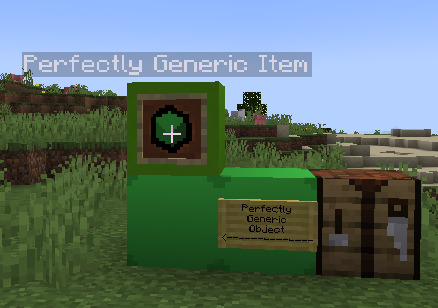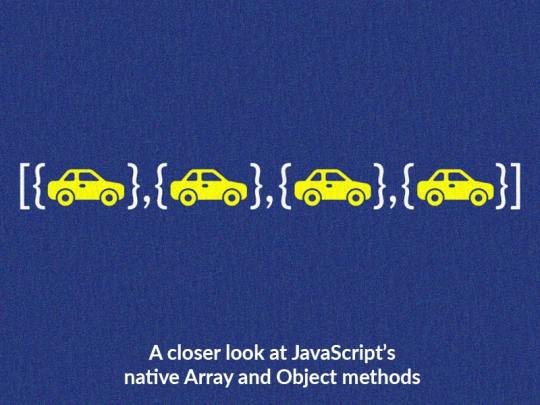#java objects
Explore tagged Tumblr posts
Text
sometimes when you're not a great programmer and everyone looks at you and goes "i don't know... that's scary" when you want to do something in ren'py you have to get creative and by creative i mean code that would make an actual programmer get mad at you
#i have three semesters of java and one of python behind my belt from college like five/six years ago and i haven't learned anything since#yet i stay silly#i taught myself html once for a web design class where the professor was completely incompetent i can do a lot through sheer determination#notart#well that first sentence is a lie actually. i learned how classes/children worked so i could make item objects#which is something i kind of knew but forgor
136 notes
·
View notes
Text
Hello audience. Unfortunately, I am still on my break. However, I am happy to announce that I am still alive and kicking. In fact, I decided to make use of my unemployment and revisit HTML, CSS, and JavaScript to create... A visual novel.
Good News: code is 100% reusable because I used a JSON (i do not know how that works, someone can kindly explain to me...)
Bad News: this code sucks ass, and NOTHING works except playing the story. Transitions? Doesn't work. UI/UX? Ass. Effects? Hell no... Also, 70% of the features aren't present yet I'm gonna do it later.
Oh, this is CrossDust, if you can't tell.


Dust Sans by Ask-Dusttale, Cross Sans by Jakei
I'm gonna respond to asks and do requests later (After my break is over). This is just a small update teehee.
#dsevalyappuccino#TIME TO GO INSANE IN THE TAGS!!#i hate css#i still hate css#css hell no#guys why is css so hard. ive literally been doing this for months and css is still hard#i was about to use css spritesheets for the sprites and emotions#but my ass gave up and instead i just use seperate images#GUYS!!! DISPLAY: FLEX 💪. DISPLAY: GRID?!?!#javascript i hate you tooq#i hate java script naurrrr#what do you mean DOM objects#what do YOU MEAN#also i do not understand error handling and JSON integrations#papaGPT doesn't explain anything#i don't know what I just wrote#coding???????????#kids don't be unemployed#actually maybe if you're unemployed but still making money that's great#also the sprites are just for testing purposes im probably gonna make new better ones if i chose to expand this into#a full blown anime high school visual novel project#i don't wanna think of all that story crap but then again i can just write the cringiest thing on earth
23 notes
·
View notes
Text
Post #176: Opinion poll by Small Basic Programming on Tumblr, Question: Which object-oriented programming language do you prefer to program with?, 2023.
#coding#programming#programmieren#education#learning#object oriented programming#python#java#c++#c#ruby#go#javascript#php#simula#smalltalk#scala#eiffel#opinion poll#survey
74 notes
·
View notes
Text
actually i just had the most random thought: fuck java.
#im dropping out of the course lol#its elective anyway#its just not worth waking up at 6 every saturday and having 6h of lab prep every week the guy is insane#also java sux ive come to realize#we wrote over 600 lines of code that does fuck all it enters staff and meals into a model of a restaurant#and finds shit like the most expensive order and the delivery driver who did the most deliveries#and it takes 600smth lines of code to do that like What?? KYS. K.Y.S.#and i truly do not get the point of private objects ur boxing urself in and making performing basic functions into a whole ordeal
2 notes
·
View notes
Text
added some placeholder blocks, items, and recipes! we got the perfectly generic item and perfectly generic object


nine perfectly generic items make 1 perfectly generic object

oh and vice versa
these probably wont be in the final game cause theyre test objects
#modded minecraft#minecraft mods#minecraft#modding#mods#perfectly generic object#java#coding#true end mod
11 notes
·
View notes
Text
fuck me I probably do need to put C back on my resume even though I don't know a lick of it anymore, huh
sorry we're going full 2019 job search meltdown over here
#stares at these things that ask about java and my justification is that i can port javascript over. with adjustments#object oriented is object oriented.. i learned it a while ago i can take it back up....#sure that counts as professional experience. why the fuck not.
3 notes
·
View notes
Text
Understanding Object-Oriented Programming and OOPs Concepts in Java
Object-oriented programming (OOP) is a paradigm that has revolutionized software development by organizing code around the concept of objects. Java, a widely used programming language, embraces the principles of OOP to provide a robust and flexible platform for developing scalable and maintainable applications. In this article, we will delve into the fundamental concepts of Object-Oriented Programming and explore how they are implemented in Java.

Object-Oriented Programming:
At its core, Object-Oriented Programming is centered on the idea of encapsulating data and behavior into objects. An object is a self-contained unit that represents a real-world entity, combining data and the operations that can be performed on that data. This approach enhances code modularity, and reusability, and makes it easier to understand and maintain.
Four Pillars of Object-Oriented Programming:
Encapsulation: Encapsulation involves bundling data (attributes) and methods (functions) that operate on the data within a single unit, i.e., an object. This encapsulation shields the internal implementation details from the outside world, promoting information hiding and reducing complexity.
Abstraction: Abstraction is the process of simplifying complex systems by modeling classes based on essential properties. In Java, abstraction is achieved through abstract classes and interfaces. Abstract classes define common characteristics for a group of related classes, while interfaces declare a set of methods that must be implemented by the classes that implement the interface.
Inheritance: Inheritance is a mechanism that allows a new class (subclass or derived class) to inherit properties and behaviors of an existing class (superclass or base class). This promotes code reuse and establishes a hierarchy, facilitating the creation of specialized classes while maintaining a common base.
Polymorphism: Polymorphism allows objects of different types to be treated as objects of a common type. This is achieved through method overloading and method overriding. Method overloading involves defining multiple methods with the same name but different parameters within a class, while method overriding allows a subclass to provide a specific implementation of a method that is already defined in its superclass.
Java Implementation of OOP Concepts:
Classes and Objects: In Java, a class is a blueprint for creating objects. It defines the attributes and methods that the objects of the class will have. Objects are instances of classes, and each object has its own set of attributes and methods. Classes in Java encapsulate data and behavior, fostering the principles of encapsulation and abstraction.
Abstraction in Java: Abstraction in Java is achieved through abstract classes and interfaces. Abstract classes can have abstract methods (methods without a body) that must be implemented by their subclasses. Interfaces declare a set of methods that must be implemented by any class that implements the interface, promoting a higher level of abstraction.
Inheritance in Java: Java supports single and multiple inheritances through classes and interfaces. Subclasses in Java can inherit attributes and methods from a superclass using the extends keyword for classes and the implements keyword for interfaces. Inheritance enhances code reuse and allows the creation of specialized classes while maintaining a common base.
Polymorphism in Java: Polymorphism in Java is manifested through method overloading and overriding. Method overloading allows a class to define multiple methods with the same name but different parameters. Method overriding occurs when a subclass provides a specific implementation for a method that is already defined in its superclass. This enables the use of a common interface for different types of objects.
Final Thoughts:
Object-oriented programming and its concepts form the foundation of modern software development. Java, with its robust support for OOP, empowers developers to create scalable, modular, and maintainable applications. Understanding the principles of encapsulation, abstraction, inheritance, and polymorphism is crucial for harnessing the full potential of OOPs concepts in Java. As you continue your journey in software development, a solid grasp of these concepts will be invaluable in designing efficient and effective solutions.
#javascript#javaprogramming#java online training#oops concepts in java#object oriented programming#education#technology#study blog#software#it#object oriented ontology#java course
3 notes
·
View notes
Text
Very amused every time someone discovers the ultimate way to do OOP in its truest, most polymorphic, most object-oriented form and its just immutable classes with public instance variables and no methods and no inheritance being transformed through singleton classes with no instance variables and one side-effect-free method, potentially taking a function as a parameter or returning another single method class. Brother you just reinvented functional programming.
#codeblr#progblr#object oriented programming#OOP#functional programming#Algebraic data types. Pure functions. Higher order functions. Closures. The gangs all here#And then whenever you tell them that what they did. they say its like functional programming but different because its polymorphic#Literally had a conniption when robert martin said he discovered clojure was actually an oop language because#it was better at polymorphism than java#This is without knowing the subtype polymorphic features in clojure
4 notes
·
View notes
Text
Java Projects for Your Resume: Why They Matter

Java Projects for Your Resume: Why They Matter
Adding Java projects to your resume can really help you land a job. Employers want to see real experience, and showcasing projects shows that you know how to apply your skills. A solid portfolio stands out more than just having certifications. These projects reflect your problem-solving skills, creativity, and understanding of Java basics and advanced concepts. Whether you’re just graduating or changing careers, having practical projects is important. Students taking Java course in Coimbatore are often encouraged to create live applications to boost their resumes and improve their chances in job interviews.
Simple Java Projects for Beginners
If you're just starting out, try adding basic Java projects like a calculator, to-do list, or temperature converter to your resume. These projects are great for grasping object-oriented programming and basic GUI design. They’re usually part of beginner exercises in Java training programs in Coimbatore, helping you learn coding logic efficiently. Working on simple applications also enhances your debugging and problem-solving skills, which are key for coding interviews. It’s a good idea for beginners to focus on these smaller projects before tackling more advanced systems.
Intermediate Java Projects That Impress
Once you’ve got the basics down, you can move on to intermediate-level Java projects for your resume, like library management systems, quiz apps, or student record management tools. These projects show that you have a better grasp of file handling, user authentication, and data structures. Many Java course in Coimbatore make sure students work on these types of projects to build real-world problem-solving skills. These applications don’t just show off your technical skills; they also demonstrate that you can create user-friendly programs.
Advanced Java Projects That Stand Out
For those with more experience, advanced projects could include chat applications, e-commerce websites, or banking systems using JavaFX or Spring Boot. These projects show that you’re skilled in frameworks, APIs, and databases. Many top Java training programs in Coimbatore include this type of work in their syllabus. Having these projects on your resume proves to employers that you’re ready for the job and can manage larger systems. Using GitHub to share your source code, along with documentation and screenshots, can give you an edge.
Importance of Full-Stack Java Projects
A full-stack Java project covers both the frontend and backend, often using HTML, CSS, JavaScript, Java, and MySQL. These projects help show that you’re not just focused on the backend but can also manage UI and databases. Joining a Java course in Coimbatore that includes full-stack content will give you an advantage in today’s job market. Such projects mimic real work environments and prove you can handle end-to-end application development.
Using Java Projects to Show Teamwork
Employers often look for teamwork skills. Including team-based Java projects on your resume, where you collaborated with others, demonstrates your ability to communicate, manage tasks, and work with version control systems like Git. Group projects in Java training programs in Coimbatore teach students how to build scalable applications with effective task management. Showcasing these projects on your resume emphasizes both your technical abilities and your teamwork qualities.
How to Present Java Projects on a Resume
When listing Java projects on your resume, make sure to include the project title, a brief description, the technologies you used, and your role in the project. Focus on the impact of your work—did it solve a real problem or improve performance? Students in Java course in Coimbatore learn how to document and present their projects for interviews. Adding links to demos or GitHub repositories is a nice touch. How you present your projects can help you stand out to potential employers.
Mistakes to Avoid While Showcasing Java Projects
Avoid listing too many projects that aren’t complete or too similar. Don’t just focus on frontend work; employers want to see sound coding and backend integration too. Students in Java training programs in Coimbatore are advised to keep their code clean, well-documented, and free of bugs. Steer clear of copying projects from the internet; instead, focus on customizing and innovating based on your learning. This shows creativity and confidence, and you'll be better prepared for questions about your projects in interviews.
How Projects Improve Your Job Readiness
Including Java projects on your resume is vital for showing you’re ready to work. It shows you can create practical applications with your skills. Employers want candidates who can contribute from day one. A strong portfolio, supported by a solid Java course in Coimbatore or good Java training program, can greatly improve your hiring chances. Recruiters appreciate real-world experience over just theoretical knowledge or course certificates.
Conclusion: Learn, Build, and Stand Out with Xplore IT Corp
If you want to get good at Java and build impressive projects for your resume, then a structured Java course in Coimbatore is a great place to start. At Xplore IT Corp, we provide relevant Java training that includes hands-on project development, resume-building workshops, and full placement support. With real experience and guidance, you can create a portfolio that impresses employers. Let your Java projects show your skills learn, build, and grow with us at Xplore IT Corp.
FAQs
1. What types of Java projects should I include in my resume?
Include a mix of simple, intermediate, and advanced projects to showcase various Java skills like OOPs, file handling, APIs, and databases.
2. How many Java projects should I list on my resume?
List 2 to 4 well-documented projects. Focus on quality rather than quantity, ensuring each project highlights a unique skill set.
3. Do Java projects really help in getting a job?
Yes, they provide evidence of your coding skills and can help you make a strong impression in interviews, especially for roles needing practical programming.
4. Where can I get help for building Java projects?
Enrolling in a Java course in Coimbatore, like the one offered by Xplore IT Corp, can provide expert guidance, resources, and structured projects.
5. Can I use GitHub to showcase my Java projects?
Definitely! GitHub is a great platform to display your work to potential employers. Include links to your GitHub projects in your resume for easy access.
#Java programming#Java developer#Java applications#Java frameworks#Java projects#Java coding#Java syntax#object-oriented programming#Java backend#Java frontend#Java database connectivity#Java Spring Boot#JavaFX#Java GUI#Java tools#Java version control#Java IDE#Java servlet#Java web development#Java interview questions
0 notes
Text
Interview: Gosling on Java
I found this interview fascinating. I flatter myself by imagining I have a lot in common with Gosling. Kudos to Darryl K Taft and The New Stack!
#software development#java#programming languages#object oriented programming#canadian#computer science#computer history#1990s#ibm#career#oracle#google#uav#ai#jvm#programming#crab
1 note
·
View note
Text
trying to figure out if i should do my algorithms project (boring, in java, probably helpful) or read madhouse as the end of the earth (interesting, not a single bit of java involved, expanding my polar exploration knowledge)
#mushd-rambles#<- think thats the tag i used earlier#java is a stupid af language i hate it#we shouldve never moved past C#the perfect language#all this “object oriented” shit is so unfashionable#i want my language old and without classes or objects
0 notes
Text
i'm poking around through RPG Maker MV's programming and... actually sort of understanding it? proud!!
#key speaks#i'm not too familiar with JavaScript#but i did learn object oriented programming in Java#and have done coding in Python and a teeny bit of C sharp#so it's moderately familiar and i understand most of the core structure#proud!#gonna keep going through the code tomorrow#it's getting late and i had to make myself stop for the night#i'm making mental notes of all the places in the code i'd maybe want to tweak to do more what i want them to#and the places that would have been necessary to change for some plug ins i've seen around#that object oriented programming class actually taught me a lot!#even if that professor wasn't the best#i appreciate the extra work he made us do now#(now that i can apply those concepts when it's not for a grade)
1 note
·
View note
Text
A Comprehensive Object-Oriented Programming Tutorial
Java object-oriented programming explained in simple terms means designing a program using objects and classes. Objects represent real-world entities, and classes act as blueprints for these objects.
0 notes
Text
JavaScript’s native Array and Object methods
Think you know JavaScript? Find out how native features can handle Objects and Arrays that simplify coding. No libraries necessary!

0 notes
Text
thinking about her(GreedyStackDestroyer)
#how tf do i get her to pass the third time test 😭#how do i get that third time test under 10 ms 😭😭😭#programming#coding#java#greedystackdestroyer#shitposting#tumblr nonsense#yeah that's a fitting tag#algorithms and datastructures#Arraylists#Arrays#HashMaps#HashMap#Array#ArrayList#tower objects
1 note
·
View note
Text
Example of Returning an Array of Object Type in Java
Let us see an example on how to return an array of object type in Java:

#java#programming#javaprogramming#code#coding#engineering#software#softwaredevelopment#education#technology#javasarray#objecttype#object#example#online
1 note
·
View note